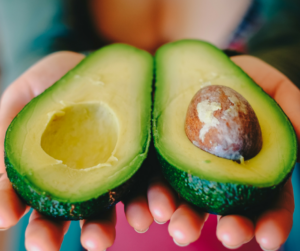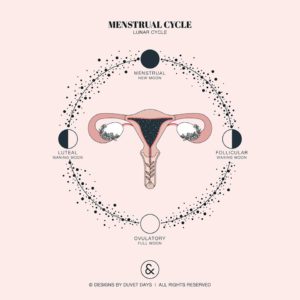Foods to optimize fertility
Balanced blood sugar is the foundation of hormonal balance and the first step in optimizing fertility. It starts with what and how we eat – every single day. We also know that to optimize our fertility we need to minimize stress. By ‘stress’ we are not talking just about everyday stressors like driving in heavy traffic or running late to catch a flight; it is any perceived stress your body experiences (such as mismanaged blood sugar). Nowadays this can occur daily, sending our bodies into overdrive and keeping us in fight/flight/freeze mode. When we are under stress our body puts reproduction and digestion on the back burner in order to direct all resources toward survival.
 What foods best support your fertility? Ideally, most of the foods we consume should be organic as well as pesticide and chemical free and in their whole and unprocessed form. If all organic is cost prohibitive you can focus on keeping the ‘dirty dozen’ organic, as well as 100% organic meat, eggs and full fat dairy. You can check the Environmental Working Group for an updated list of the Clean Fifteen and the Dirty Dozen. To support our body in making hormones we want to eat lots of omega rich foods such as avocados (the fertility superfood), wild-caught salmon, pastured organic eggs, walnuts, almonds, sunflower seeds, flax seeds, coconut, and olive oil. Focus on foods rich in antioxidants and beta carotene like dark leafy greens, blueberries, raspberries, blackberries, red grapes, yellow and orange vegetables like carrots, squash, sweet potatoes. These will provide lots of nutrients our bodies need. Cruciferous vegetables are full of fiber and contain DIM to help with estrogen metabolism. They also protect our bodies from harmful chemicals. For men lycopene-rich foods like tomatoes help to support sperm count and eating a diet rich in antioxidants will help with sperm motility and morphology.
What foods best support your fertility? Ideally, most of the foods we consume should be organic as well as pesticide and chemical free and in their whole and unprocessed form. If all organic is cost prohibitive you can focus on keeping the ‘dirty dozen’ organic, as well as 100% organic meat, eggs and full fat dairy. You can check the Environmental Working Group for an updated list of the Clean Fifteen and the Dirty Dozen. To support our body in making hormones we want to eat lots of omega rich foods such as avocados (the fertility superfood), wild-caught salmon, pastured organic eggs, walnuts, almonds, sunflower seeds, flax seeds, coconut, and olive oil. Focus on foods rich in antioxidants and beta carotene like dark leafy greens, blueberries, raspberries, blackberries, red grapes, yellow and orange vegetables like carrots, squash, sweet potatoes. These will provide lots of nutrients our bodies need. Cruciferous vegetables are full of fiber and contain DIM to help with estrogen metabolism. They also protect our bodies from harmful chemicals. For men lycopene-rich foods like tomatoes help to support sperm count and eating a diet rich in antioxidants will help with sperm motility and morphology.
If you are trying to conceive it is helpful to eat as if you are pregnant. This means focusing on warm cooked foods, lots of broth such as bone broth soups and consuming warm or room temperature beverages. It is also important to stay hydrated. This also means ditch the caffeine, coffee can negatively impact fertility and studies have shown that if you’re undergoing IVF it can reduce your success rate by as much as 50%. Even though green tea seems like a healthy choice since it is high in antioxidants it can actually decrease blood flow to the uterus. That is something we definitely don’t want for conception!
For balanced blood sugar the Mediterranean diet has been found to be the most supportive. This focuses on healthy fats, lean proteins, nuts, seeds, and lots of fresh veggies. Here the slow burning carbohydrates keep your blood sugar stable and prevent the crash and burn you can experience from sugar laden products.
To ensure our microbiome is running smoothly focus on probiotic rich foods such as sauerkraut, kimchi, yogurt, or kefir. A healthy microbiome will ensure the estrobolome works well, helping your body metabolize and get rid of excess estrogen through phase 1 and 2 detoxification. Many studies have shown that if you’re trying to conceive, eating full fat dairy is beneficial.

If you want to take this a step further you may consider eating for each phase of your cycle to support hormones throughout your menstrual cycle. During menses you will want to eat more blood building foods such as dark berries, beets, mushrooms, black sesame seeds, kidney and black beans, and sea vegetables as well as lean proteins. During the follicular phase and ovulation phase focus will be on egg development and building a good endometrial lining to support a strong and successful implantation. This is the time to eat more raw vegetables to support estrogen metabolism. During the luteal phase you may notice you feel more hungry, this is because your body has a lower resting blood sugar rate. Here the need for more slow burning carbohydrates increases and foods such as sweet potatoes, root vegetables, brown rice, and quinoa are optimal choices. These slow burning carbs will help to boost progesterone production which is necessary for a healthy pregnancy.
If you are looking for more support consider working with a fertility specialist!
